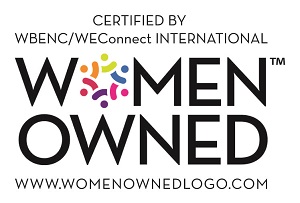Why Accessibility is not a DIY Project
Published onThe ingredients look simple, the instructions are feasible, so you try it. But your results are nothing like what you planned. You have to abort the mission, find a professional to fix it in time, and then laugh. It happens with cakes, clothes, home improvement, and documents. But you have far more to lose when it’s your documents. In this case, and many others, it’s best to call a professional.
This DIY isn’t a side job.
Most “Do It Yourself” (DIY) projects can be done in conjunction with your workload. It’s no big deal to add a few additional duties to your associate or Human Resources manager, but accessibility is a full-time job. We’re finding that companies are responding to the demand by adding compliance positions in their organizations. This role typically oversees audits for all security, Health Insurance Portability and Accountability Act (HIPAA), operational, Information Technology (IT), and document compliance. The ideal candidate has to be knowledgeable about the organizational needs, and the company partners they choose to do out-of-house work. Either way, if you have a compliance person or you handle each Americans with Disabilities Act (ADA) request as they come in, you can’t do it all yourself.
DIY’s get done whenever.
Chances are you’re good at what you do. You may procrastinate if you don’t know where to begin or have the feeling that a task isn’t important. Some of the best DIYs have been on your mind for a while and yet you just haven’t gotten around to them. You can’t procrastinate on accessibility, because technically you’re 29 years behind schedule. Plenty of companies that do what you do have been slapped on the wrist for waiting around to get their act together.
How bad could it be?
Well, let’s look at the previous years. In 2017, Winn Dixie lost $100,000 as part of their ADA settlement, then in 2018, LSAT was hit with $480,000 in fees for ADA violations, and in 2019 Flagler County paid more than $15,000 to settle an ADA lawsuit. Even small businesses have a lot to lose. For example, the small business owners of Mystic Hobby Games were forced to shut down after being sued. “We just didn’t lose a business,” said Nelson. “We lost our home, and we lost our means of making money.” As you can see, there is no set lawsuit amount, and the cost of violation varies greatly– not to mention the toll it takes on your public reputation. It takes years to build your clientele, and just like that, it could be all lost.
As bad as lawsuits
Small businesses have vocalized that they feel they’re being unfairly targeted through predatory lawsuits. But, predatory lawyers are being tried and held accountable for their manipulation and deceit. Actions have been taken to disbar lawyers who are predatorily seeking ADA cases without visiting the site, talking to the owners, requesting accessible menus, documents, services, etc. And, though these predatory lawsuits aren’t the best way to inspire change and ADA compliance, these targeted small businesses were in the wrong. We recommend implementing a plan to be ADA compliant. Concern yourself with remediating your public-facing files, making your website accessible through the Web Content Accessibility Guidelines (WCAG), having a document accessibility partner you trust, and sending your requests to them as they come. That’s a much better strategy than taking on a DIY.
Crafting a better response
Sometimes when our team provides a quote for accessible documents, we’ll get a response saying, “Nevermind, we’ve decided not to do it.”
While it’s okay to not go with us for your compliance needs (to each their own), it’s not okay to decide you’d rather exclude people and take your chances with the law. We’re a world far more connected than we once were, and there are apps to tell people with disabilities which companies are most accommodating (and not). Not only are people with disabilities speaking up for themselves, but the airways are filled with advocates and people close to those affected by barriers. Ultimately, the world is more educated than it once was. There was a time when people had to walk around with the law in their pockets to prove they were allowed to be in the same space and get the same great service as people without disabilities. That time has passed and you have a great responsibility to all people when you go into business.
[Pop Quiz]
Chances are you still think you can handle DIY accessibility. You should take this self-assessment to make sure you can. You don’t have to share your score with anyone, but it will help you take stock of your organization’s ability to meet the demand for accessibility.
Do you know the answers to any of the following?
- Do you know how many layers a PDF has?
- How do you get into the third layer of a PDF to correct the order a screen reader will read the information from?
- Have you run a compliance check on your website and brought the results to a developer?
- Does every image or table on your website have alt-text?
- Do you check your writing for readability for those with learning disabilities?
- Do you know the difference between the “Header” Style and the “Heading” Styles?
If you answered “no,” “I don’t know,” or “maybe” to any one of the above questions, you probably need a document accessibility partner.
So, if accessibility is not a DIY, what is it?
We like to think of it as a long-term group project. The more knowledgeable people you have on your team, the more you can succeed. Don’t fall for people who oversell themselves, or give you a price before they explore your accessibility needs, or fail to make security a priority.
The entrepreneurial spirit led you to put up a website and find a niche market. We love that spirit. It’s led us to be in business for nearly 30 years. We all need to move with the changing world, value compliance, and know when a task can be accomplished independently and when we need to call an expert.
Categorized in: Accessibility, Informational, Opinion
This post was written by







Comments are closed here.